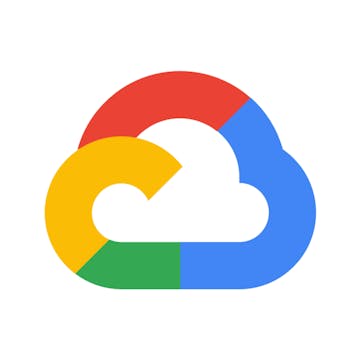
Good to know
Save this course
Activities
Seek out experienced Minecraft server administrators
Show steps
Provides opportunities for additional guidance and support from experts.
Show steps
-
Identify potential mentors
-
Reach out to mentors
Review Minecraft setup and installation
Show steps
Improves installation and setup skills using the terminal command line.
Browse courses on
Command Line Interface
Show steps
-
Review Linux command line basics
-
Review Minecraft installation instructions
-
Run Minecraft installation script
Join a Minecraft server community
Show steps
Facilitates knowledge sharing, collaboration, and peer support.
Show steps
-
Find a Minecraft server community
-
Participate in community discussions
Five other activities
Expand to see all activities and additional details
Show all eight activities
Follow Google's Java Server Tutorial
Show steps
Provides additional learning using Google's own tutorial for this setup.
Show steps
-
Access Google's tutorial for Java Server
-
Follow steps in tutorial
Troubleshoot common Minecraft server issues
Show steps
Strengthens understanding of common issues and how to resolve them.
Show steps
-
Identify common Minecraft server issues
-
Research and apply solutions
Create and personalize your own Minecraft world
Show steps
Solidifies skills learned in this course through hands-on application.
Show steps
-
Create a new Minecraft world
-
Customize world settings
-
Build and explore your world
Write a blog post about your Minecraft server experience
Show steps
Enhances communication and writing skills while solidifying knowledge.
Show steps
-
Choose a topic related to Minecraft
-
Write and edit your blog post
-
Publish your blog post online
Answer questions and provide guidance to fellow Minecraft server enthusiasts
Show steps
Strengthens your own understanding by teaching others.
Show steps
-
Identify opportunities to help others
-
Provide support and guidance
Seek out experienced Minecraft server administrators
Show steps
Provides opportunities for additional guidance and support from experts.
Show steps
- Identify potential mentors
- Reach out to mentors
Review Minecraft setup and installation
Show steps
Improves installation and setup skills using the terminal command line.
Browse courses on
Command Line Interface
Show steps
- Review Linux command line basics
- Review Minecraft installation instructions
- Run Minecraft installation script
Join a Minecraft server community
Show steps
Facilitates knowledge sharing, collaboration, and peer support.
Show steps
- Find a Minecraft server community
- Participate in community discussions
Follow Google's Java Server Tutorial
Show steps
Provides additional learning using Google's own tutorial for this setup.
Show steps
- Access Google's tutorial for Java Server
- Follow steps in tutorial
Troubleshoot common Minecraft server issues
Show steps
Strengthens understanding of common issues and how to resolve them.
Show steps
- Identify common Minecraft server issues
- Research and apply solutions
Create and personalize your own Minecraft world
Show steps
Solidifies skills learned in this course through hands-on application.
Show steps
- Create a new Minecraft world
- Customize world settings
- Build and explore your world
Write a blog post about your Minecraft server experience
Show steps
Enhances communication and writing skills while solidifying knowledge.
Show steps
- Choose a topic related to Minecraft
- Write and edit your blog post
- Publish your blog post online
Answer questions and provide guidance to fellow Minecraft server enthusiasts
Show steps
Strengthens your own understanding by teaching others.
Show steps
- Identify opportunities to help others
- Provide support and guidance
Career center
Cloud Infrastructure Engineer
Cloud Systems Engineer
Network Engineer
Infrastructure Engineer
DevOps Engineer
IT Architect
Cloud Computing Engineer
Cloud Platform Solutions Architect
Cloud Software Engineer
Data Engineer
Cloud Consultant
IT Consultant
Software Engineer
Azure Cloud Engineer
Game Developer
Reading list
Share
Similar courses
OpenCourser helps millions of learners each year. People visit us to learn workspace skills, ace their exams, and nurture their curiosity.
Our extensive catalog contains over 50,000 courses and twice as many books. Browse by search, by topic, or even by career interests. We'll match you to the right resources quickly.
Find this site helpful? Tell a friend about us.
We're supported by our community of learners. When you purchase or subscribe to courses and programs or purchase books, we may earn a commission from our partners.
Your purchases help us maintain our catalog and keep our servers humming without ads.
Thank you for supporting OpenCourser.



